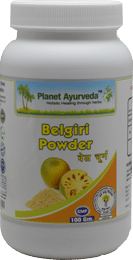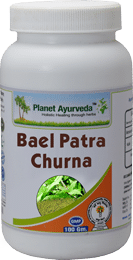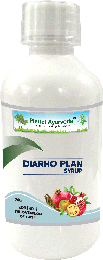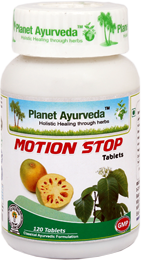Bilva (Aegle marmelos) - Bael Uses, Benefits, Dosage and Properties
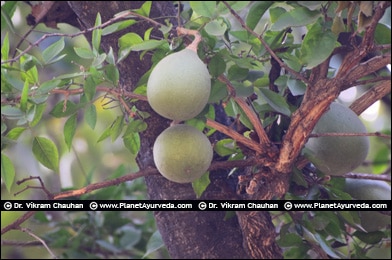
Description of Plant
Bael is a spinous deciduous and aromatic tree with long, strong and axillary spines. This Bael tree grows up to 18mt in height and thickness of tree is about 3-4ft. Bael Leaves are 3-5 foliate, leaflets are ovate and have typical aroma. Bael Flowers are greenish white in color and sweet scented. Bael Fruits are large, woody, greyish yellow, 8-15 celled and have sweet gummy orange colored pulp. Bael Seeds are compressed, oblong and numerous found in aromatic pulp.
General Information of Bilva
Bael is also known as Bilva in Sanskrit language. In Ayurveda, it is more commonly known by the same name. This herb has great medicinal, spiritual and religious significance. Bilva fruits and Bilva leaves are considered sacred and used as offerings to the Hindu Gods like Lord Shiva. This is why it is also known as "Shiva druma" or the tree of Shiva in ancient scriptures.
Bilva is also known for its great properties of keeping blood sugar levels under control for which it is being explored far and wide. It is also great for digestion and helps to keep the intestines healthy.
Different parts of this herb are used for different purposes. Its fruit is relished as a whole as well as for its chilled juice which is very good to beat the heat in hot and scorching summers like those of northern India.
The leaves are also a significant contributor to the many beneficial properties that Bilva herb exhibits. Old yellow fruits of this tree turns green after one year. It contains tannic acid, volatile oil and mucilaginous liquid.
Special Note about Aegle marmelos
- Bilva Unripe fruits - Balance Kapha and Vata doshas.
- Bilva Ripe fruits - Difficult to digest and aggravate all three doshas.
- Bilva Roots - Improves digestion, prevent vomiting and balance all three doshas.
- Bilva Leaves - Relieves pain, dyspepsia, gastritis and abdominal colic pain. It also balances all three doshas.
- Bilva Stem - Good for the heart, effective in rheumatoid arthritis and improves secretion of digestive enzymes.
- Bilva Flowers - Relieves diarrhea, dysentery, thirst and vomiting.
Names
- Bael English name - Apple wood, Bengal quince.
- Bael Hindi name - Bael, Bel patra, Vili, Sriphal
- Bael Sanskrit name - Bilva, Sriphal, Pootivat, Shaelpatra, Lakshmiputra, Shiveshta
- Bael Gujarati name - Bael, Beelee
- Bael Marathi name - Bael
- Bael Punjabi name - Bael
- Bael Telugu name - Bilvayu, Moredu
- Bael Arabic name - Safarjale
- Bael Urdu name - Bael
- Bael Tamil name - Bilubam
Classification
- Kingdom - Plantae
- Order - Sapnidales
- Family - Rutaceae
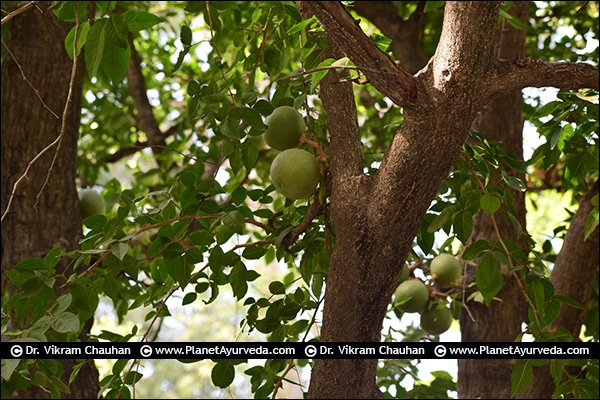
Habitat
Bilva is a very common herbaceous plant native to Bangladesh, Sri-Lanka and India. It grows in most parts of the Indian sub-continent, Myanmar and South – East Asia. Forests on hills and Rajasthan is suitable climate for this tree. This herb is also distributed in other countries such as Pakistan, Nepal, Philippines, Fiji, Cambodia and Thailand.
Ayurvedic Properties
| Hindi / Sanskrit | English | ||
| Rasa | Katu, Tikta, Kashaya | Taste | Pungent, Bitter, Astringent |
| Guna | Grahi, Snigdha, Tikshna | Physical Property | Absorbent, Unctuous, Sharp |
| Virya | Ushna | Potency | Hot |
| Vipaka | Katu | Metabolic Property (After Digestion) | Pungent |
Effects on Doshas
It balances tridosha.
| Charak Samhita | Sushrut Samhita |
|
Varunadi, Ambashtadi, Brihat panchmoola, Dashmoola |
Ancient Verse about Bael

Bilav, shandliya, shailush, maloor and shriphal are various synonyms of this bael. It is bitter and astringent in taste, absorbent, rough, stimulates digestive fire, aggravates pitta dosh and pacifies vata kapha dosha. It has light guna, improves digestion and has hot potency.
Practical Uses of Bilva
- As already discussed above, different parts of the Bael plant are used for different health conditions. Special emphasis has been given to the ripened fruits which are not considered as healthy and if consumed, may lead to unnecessary bloating and indigestion.
- Researches are on to explore more on the hypoglycemic action of this plant and leaves have anti-diabetic properties. It helps to control diabetic polyuria. Bilva helps pancreas to produce more amount of insulin, which controls diabetes.
- In Ayurveda, there is a very popular group of herbs known by the term "Dashamoola". These ten herbs are considered as the best anti – inflammatory and pain relieving herbs of all times. Bilva is one of the ten herbs mentioned in this group. Therefore, it can be widely used in a variety of pain producing conditions in the body.
- Problems of the female reproductive system like leucorrhea, menstrual irregularities & vaginal hemorrhages etc. are also relieved with the use of Bilva along with other herbs.
- It also balances pitta related disorders in the body, effective in managing ulcers and infections.
- The ripe fruit has laxative properties and helps to treat constipation. Unripe fruit is also very effective in treating dysentery, diarrhea and other gastro intestinal disorders.
- It has power to fight against skin diseases and used to cure various skin disorders.
- Bilva helps to control functioning of heart, cardiac muscles and cardio vascular system of body.
Part Used
- Bilva Patra Leaves
- Bilva Ripe fruits
- Bilva Unripe fruits
Caution
- Pregnancy
- Breastfeeding
- Surgery
Planet Ayurveda's Products which Contain Bael Patra as an Ingredient
1. Belgiri Powder
Belgiri Powder of Planet Ayurveda is formulated by an herb Bilva (Aegle marmelos). It balances Vata and Kapha dosha in the body. This herb helps to support a healthy digestive and respiratory system. It also maintains healthy cholesterol and blood glucose levels in the body. Belgiri powder is a very effective Ayurvedic formulation for ulcerative colitis, IBS, IBD, diarrhea, indigestion, dysentery, and bowel infections.
Dosage: 1/2 to 1 teaspoonful two times a day with plain water after the meals.
2. Bael Patra Churna
Bael Patra Churna is prepared by using Bael leaves (Aegle marmelos). Bael is an Indian plant and has great medicinal, spiritual and religious importance. It helps to maintain the healthy functioning of the digestive, cardiovascular and respiratory system. It also supports healthy cholesterol and blood glucose levels in the body. It balances Vata and Kapha dosha in the body. This churna also maintains skin quality.
Dosage: 1 teaspoonful two times a day with plain water after the meals.
3. Diarho Plan Syrup
Diarho Plan Syrup of Planet Ayurveda prepared by combination of various herbs such as Bilva (Aegle marmelos), Dhanyaka (Coriandrum sativum), Kutaz (Holarrhena Antidysenterica), Dadima (Punica granatum), Dhatki (Woodfordia fruticosa), Avartani (Helicteres isora), Saunf (Foeniculum vulgare). These herbs are very effective in controlling diarrhea and bowel movements. It improves the digestive system and increases appetite. It removes bacteria and toxins from the body which cause infection and chronic diarrhea. These herbs are 100% pure and natural.
Dosage: 1-2 teaspoon two times a day or as prescribed by Ayurvedic practitioner.
4. Motion Stop Tablets
Motion Stop Tablet is an herbal formulation of Planet Ayurveda and contains a mixture of herbs such as Kutaj (Holarrhena antidysenterica), Bael (Aegle marmelos), Haldi (Curcuma longa), Anar (Punica granatum) and Nagarmotha (Cyperus rotundus). These maintain the healthy functioning of the intestine. These tablets are very effective in the treatment of diarrhea. It also eliminates the toxins from the body and prevents inflammation of the intestines. It balances the Vata and Pitta dosha in the body.
Dosage: 2 to 3 tablets with fresh water two times a day or as per prescribed by the physician.

